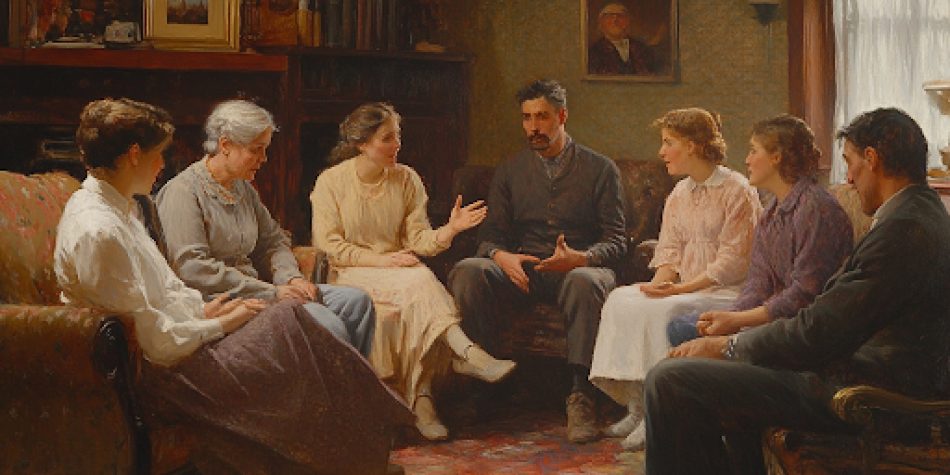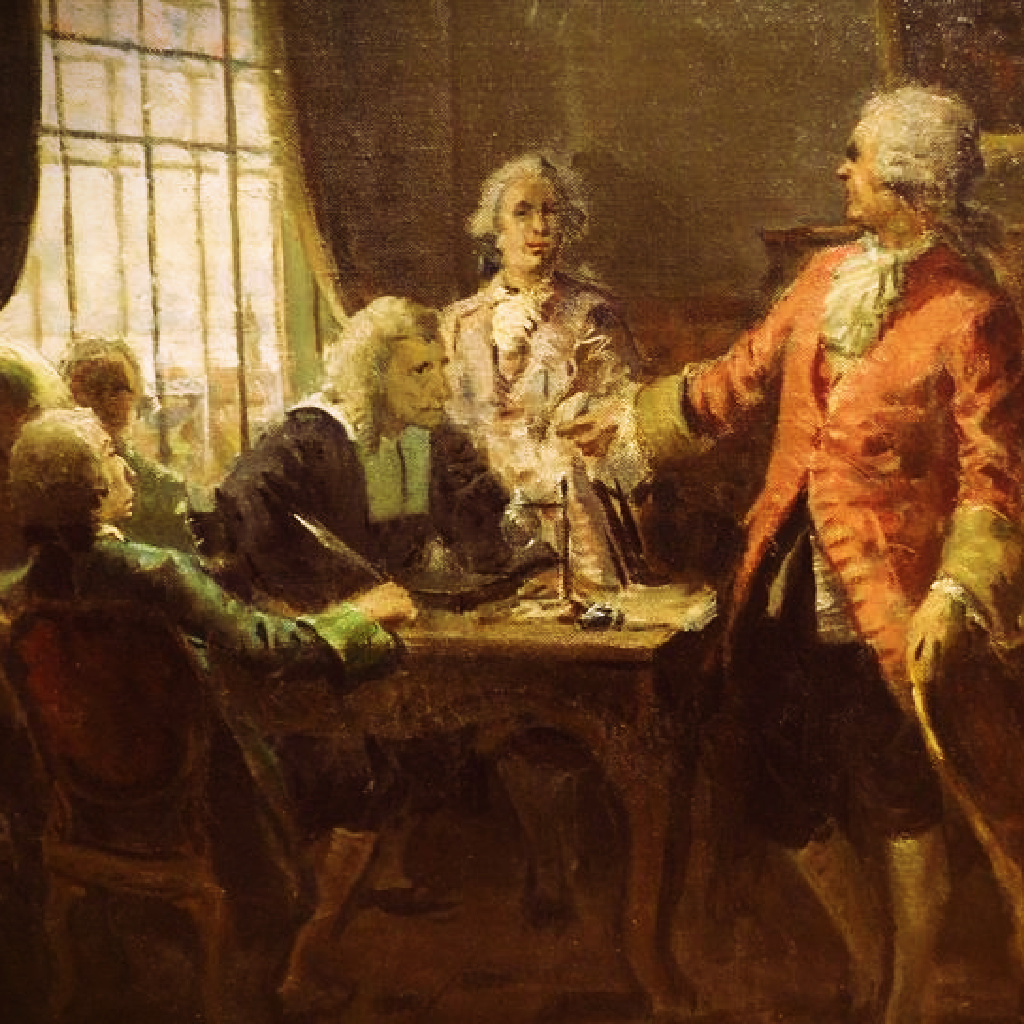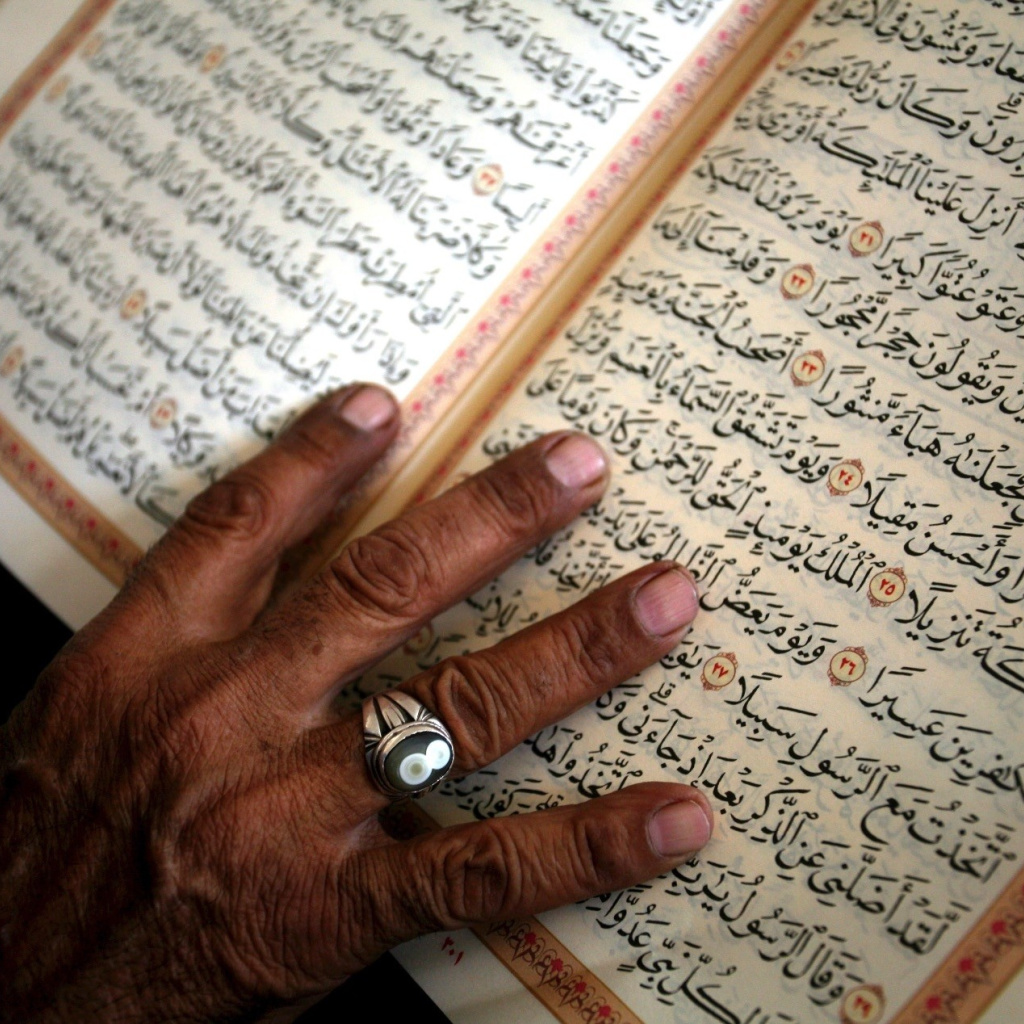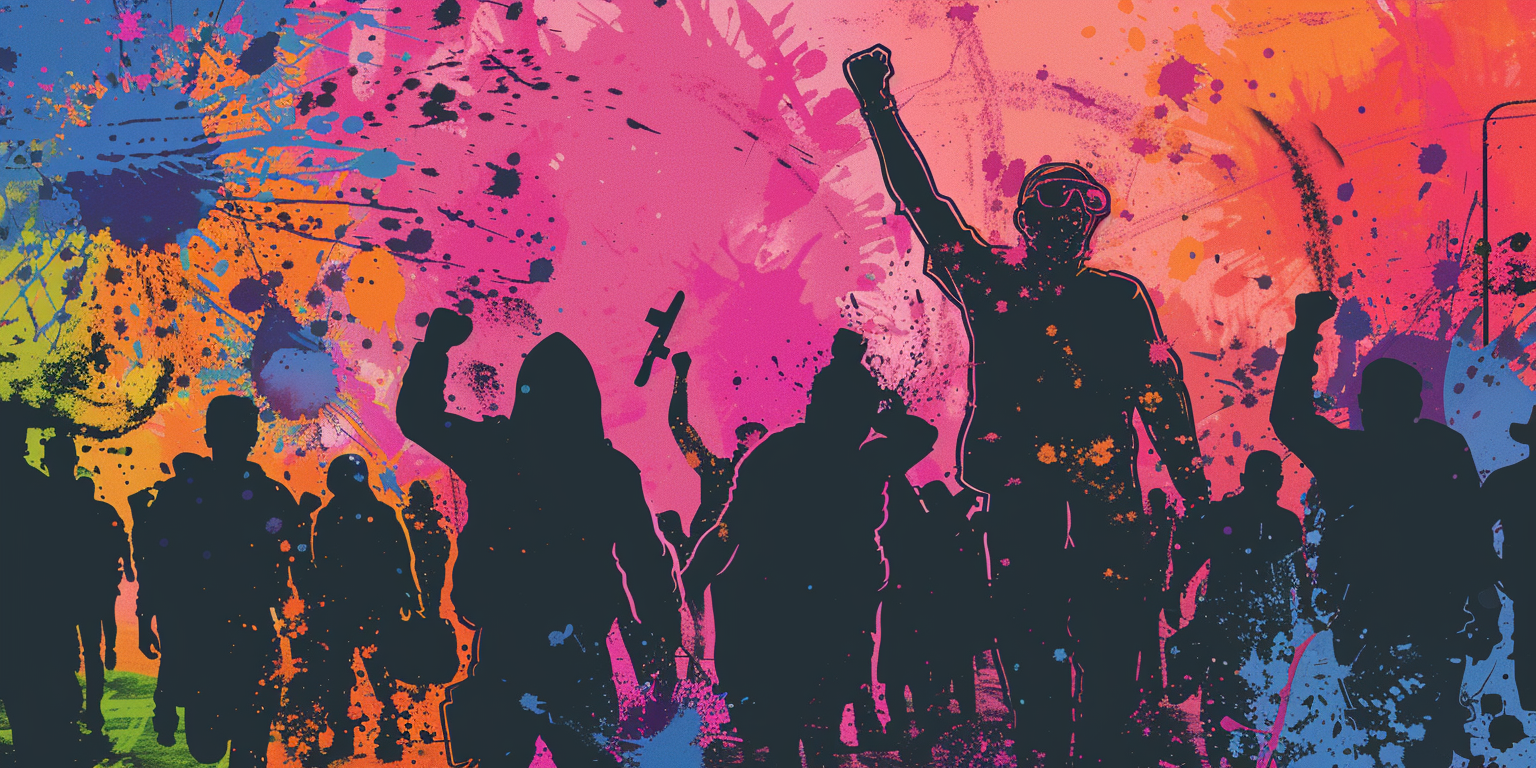Kids arguing over toys, teenagers willfully disobeying rules, and a mom ruminating over some long-standing offense caused by her sister—this is the environment we find inside a home—even in the most stable and loving of homes. Home is meant to become a place of peace amidst the turmoil of the world, but, in truth, it often feels like living in a warzone.
We should defend the importance of the family as a stabilizing force in society—a spiritual and emotional respite. However, paradoxically, there is another argument for why we should be grateful for the influence of the family: there is no respite from your own big brother, and there is little stability in your relationship with your moody little sister.
Think back to your childhood. You hopefully have fond memories of laughter and play. I hope that those memories are the most vivid for you. However, for the sake of my argument, try to remember the reality of daily life with your family. Maybe your big brother ignored you, your sister was hyper-sensitive, or your dad was hard to please. But the reality of familial discord does not negate the good times. In fact, I argue that it makes them all the more miraculous. The reality of familial discord does not negate the good times.
But why would we want to defend families if this is the case? As we learn in Romans 5 and hear so often over the pulpit, suffering breeds character. “We rejoice in our sufferings, knowing that suffering produces endurance, and endurance produces character, and character produces hope.”
Chesterton emphasizes the conflict implicit in family life not as a discouragement against family but as an enticement to those of us who genuinely want self-improvement, “The best way that a man could test his readiness to encounter the common variety of mankind (to test his goodness) would be to climb down a chimney into any house at random and get on as well as possible with the people inside. And this is essentially what each one of us did on the day that he was born.”
Why Familial Loyalty is Crumbling
Modern thinkers often reject the family because of the conflict and clashing personalities that are so often found there. They say it thwarts happiness and dampens freedom. Many feel we should be able to choose our associations rather than have to deal with unfavorable family relations. This is why we see more people breaking away from family. Indeed, one in four adults now say they are estranged from a family member. A recent article in the New Yorker discusses the reasons why an increasing number of people are having “no contact” with their parents. This is due in large part to shifting political or religious ideals or the inability to get along. Rather than condemning this trend, the author seemed to conclude that there is no way out for many families. One secular estranged daughter said of her religious parents, “Reconciliation, for me, would mean them doing a bunch of work, and I don’t think they’re going to, so I just need to move forward like it’s not going to happen.” And so, the estranged move into like-minded communities, read their favorite political pundits, and become comfortable with their chosen clan.
Family reconciliation demands work—work that is continual and difficult for all involved. Many don’t seem willing to make that sacrifice anymore. The Christian values of forgiveness and humility seem outdated and we would rather just have a life of ease. But a life that is surrounded only by people who make us comfortable is a small world indeed. As Chesterton says, “We make our friends, we make our enemies, but God makes our next-door neighbor … That is why the old religions and the old scriptural language showed so sharp a wisdom when they spoke, not of one’s duty toward humanity, but one’s duty to one’s neighbor.”
“Progress” is one of our favorite words, but we just don’t hear much about “becoming a good person.” Yet, if we want progress, surely the only path toward it is for individuals to improve themselves and become virtuous. Throughout human history, the quest for “goodness” has been the driver of great minds as well as common men and women. Great thinkers like Socrates, Plato, and Aristotle spent their lives seeking to define and comprehend virtue and to teach us how to live a “good” life. Their intellectual descendants in philosophy, theology, and literature have long tried to work out the way to virtue. Guiding children onto the path of goodness was once the backbone of education. Plato even defined education this way, “Education is teaching our children to desire the right things.” Christian values of forgiveness and humility seem outdated.
Our children are now being schooled without the benefit of McGuffey Readers. Many of their lessons would seem judgmental or overly prescriptive to our modern relativist viewpoint. School curricula rarely mention “virtue” or overcoming adversity but instead focus on achievement and happiness. The traditions and morals of our ancestors crumble, and children are left with endless choices and no clear expectations of life. Children unschooled in virtue may decide that the struggles of family life impede their achievement or happiness. Therefore, we should not be surprised by free-falling marriage and birth rates.
“There is no doubt that it is around the family and the home that all the greatest virtues, the most dominating virtues of human society, are created, strengthened, and maintained.” Winston Churchhill
As Christians, however, we seek after virtue, accept suffering as part of mortality, and desire much greater ambitions than a mortal life of comfort. We want a life that demands things of us, that stretches us—we want an adventure. Chesterton explains,
Adventure is, by nature, a thing that comes to us. It is a thing that chooses us, not a thing that we choose. The supreme adventure is being born. There we do walk suddenly into a splendid and startling trap. There we do see something of which we have not dreamed before. Our father and mother do lie in wait for us and leap out on us, like brigands from a bush. Our uncle is a surprise. Our aunt is a bolt from the blue. When we step into the family, by the act of being born, we do step into a world which is incalculable, into a world which has its own strange laws, into a world which could do without us, into a world that we have not made. In other words, when we step into the family, we step into a fairytale.
If we take control over our lives, free ourselves of pesky relatives, and create a society for ourselves, we will block ourselves from any humbling relationships that aid our virtuous progression. As Chesterton says, we may create a society “for the purpose of guarding the solitary and sensitive individual from all experience of the bitter and bracing human compromises. It is, in the most literal sense of the words, a society for the prevention of Christian knowledge.”
The “Thrownness” of the Family
German philosopher Martin Heidegger describes our birth into this world as being “thrown” into our lives. We didn’t choose the place or circumstances of our birth nor our relatives and culture. Although there are some theories that premortal souls may have had some choice in their ultimate destination, there is no clear doctrine on this topic. Therefore, we will assume that the ‘throwing’ was done by our Heavenly Father. Seeing that we are often thrown into situations that are difficult and with people with whom we don’t naturally get along, comfort doesn’t seem to be His goal for our lives. Instead, God wants us to become good, to prove we can take the life we are thrown into and turn it into a hero’s epic.
The home is where most of our heroism must occur. There is a special kind of annoyance that happens in the home, a more potent offense and a more stinging rebuke than found anywhere else in the world. We could travel around the world among diverse cultures and never encounter anyone as incomprehensible as our own sister. We can seek and attain honor and glory on Wall Street but find no one whose opinion matters more to us than our own fastidious father. We may debate opposing ideologies throughout the nation but will find no one’s politics more upsetting than our own Uncle Bob.
“The family is a good institution because it is uncongenial. It is wholesome precisely because it contains so many divergences and varieties. It is like a little kingdom and, like most other little kingdoms, is generally in a state of something resembling anarchy.” ~ G.K. Chesterton
Perhaps we listen to sweet and idyllic descriptions of the family and think our own family is unique in its chaos and conflict—it isn’t. But that’s okay. “The family is a good institution because it is uncongenial.”
Taking Heidegger’s concept, who has been ‘thrown’ at us that we must learn to deal with? Who were we ‘thrown’ at? More than likely, we were thrown some curve balls. Considering the shared genetics, environment, and culture, it is miraculous how different members of a family can be from one another. Perhaps this diversity was purposely orchestrated by a loving Heavenly Father who knows what we need to progress.
It’s a sad irony that we would never have been as neglectful of our high-school teacher’s instructions as we were of our beloved mother’s. Our brother would never have treated his friend’s little sister the way he did his own. But, because we deeply loved our mother and, despite his denials, our big brother cherished his little sister—there was, and is, a persistent power present in the family sufficient to enable a deep and lasting change to our character.
I remember well as a child that my best friend was my sister, who was two years older than me. She was also my worst enemy. She was sweet, quiet, and sensitive. I was overconfident, pushy, and insensitive. This led to some hardship. I remember feeling like she always thought the worst of me. She remembers my rudeness. Years into our adulthood, we would still get into arguments. But I have changed, and so has she. I am less brash and sarcastic than I used to be, and my sister is more resilient than she used to be. It seems reasonable to assume these changes came from varied life experiences, travels, or extensive reading of scripture, psychology, and philosophy.
But honestly, I think the change came because of our relationship and the slow chipping away of each other’s rough edges. I began to choose not to say things because I didn’t want her to take it the wrong way. She chose to let things go. I believe I am a better person because I had to go through the difficulty of adapting to my sister. We got through our trying and wonderful childhood and are still best friends, but we are no longer worst enemies.
If we believe this life is a grand adventure—a place to prove ourselves, develop ourselves, and prepare ourselves for even greater tests in life—what better place to become “good” than those places that God “throws” us? In the relationship we did not choose, we will find inconvenient people who help us stretch experiences and grow. The family may be the harshest and most demanding of all tests.
Marcus Aurelius’ Meditations, written 2000 years ago, is full of a Roman emperor’s philosophical rumination on how to be a good man and how to deal stoically with our fellow humans. It’s almost humorous to read how the ruler of a huge empire, whose daily life was filled with conquering armies, political strife, and exotic adventures, has to repeatedly reassure himself he is capable of dealing with everyday interactions with family and associates. He writes, “When you wake up in the morning, tell yourself: the people I deal with today will be meddling, ungrateful, arrogant, dishonest, jealous and surly. … And so none of them can hurt me. No one can implicate me in ugliness. Nor can I feel angry at my relative or hate him. We were born to work together like feet, hands, and eyes, like the two rows of teeth, upper and lower.”
Goodness is Built at Home
Of all the quests we may take, there is none more primed to lead us on the path of goodness than those inside the walls of our own homes. It is in our home that we become true heroes. It is in our unchosen environments that we test our virtues. If we want to prove ourselves as disciples of Christ, emissaries of love and forgiveness, we must succeed on the battlefield of our own home. There was, and is, a persistent power present in the family.
As a mother of five, it is easy for me to be profoundly grateful for my beautiful children and my life full of loving moments. The greatest joys in life come through my family as well as the greatest miseries and strife. If I can, through the lack of peace and pleasantness, find reconciliation, patience, and love, perhaps I have found the path toward goodness and adventure.
If we ponder the many things we have to be grateful for this Thanksgiving, perhaps we could consider the hardships found in our own homes. Let’s pray for peace and work towards harmony. But let’s also teach our son that if he could just learn to get along with his little sister, ruling Rome would be easy.
Link to the essay for Heretics by G.K. Chesterton, which is quoted at length.
















